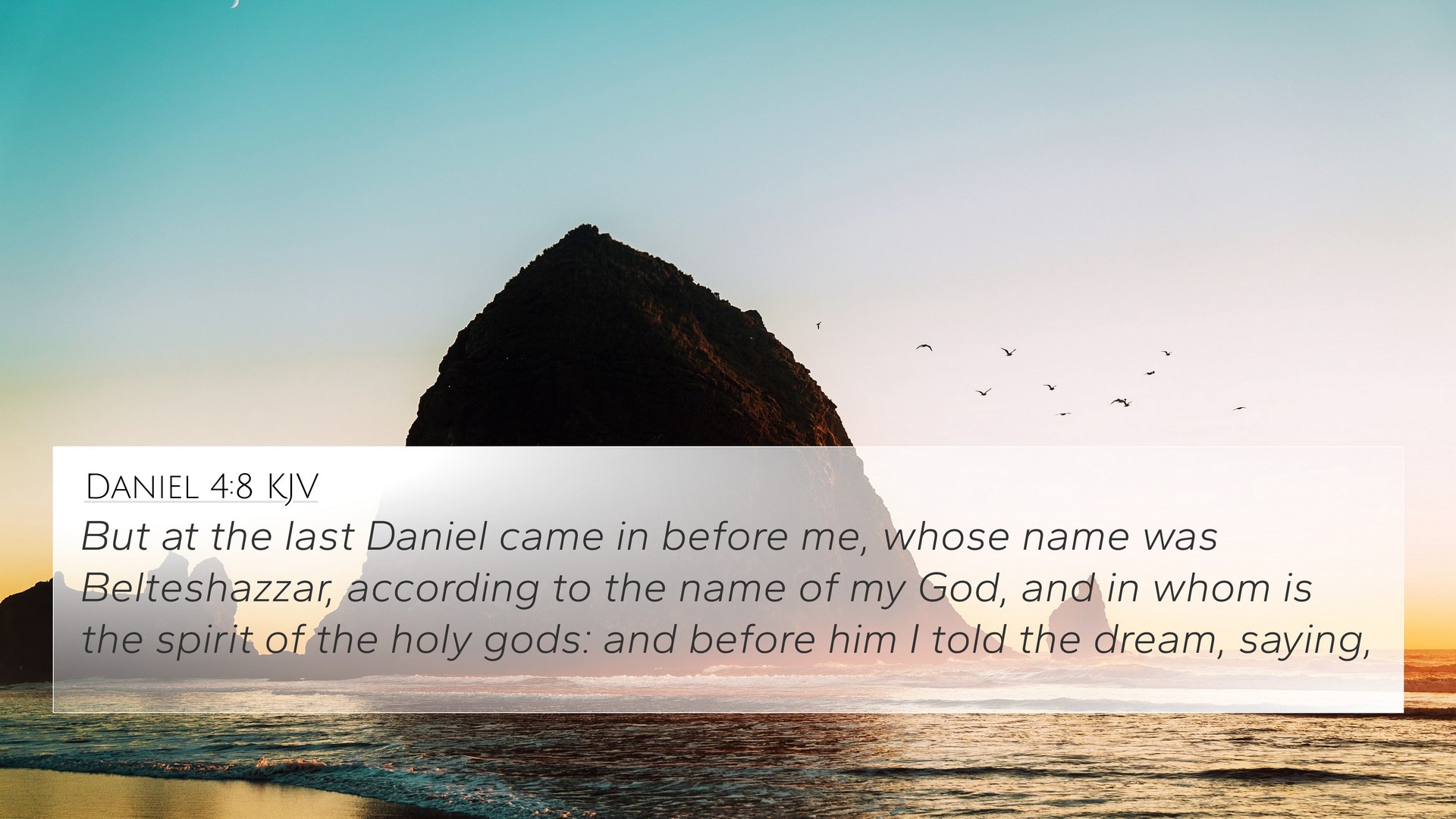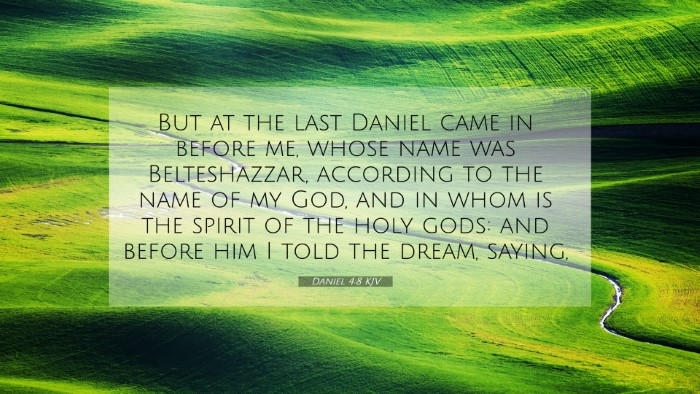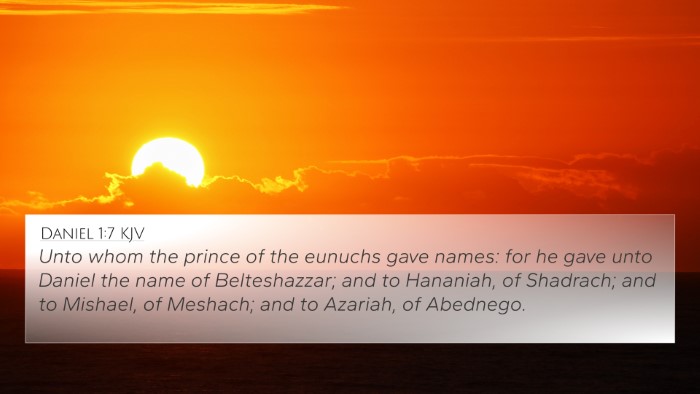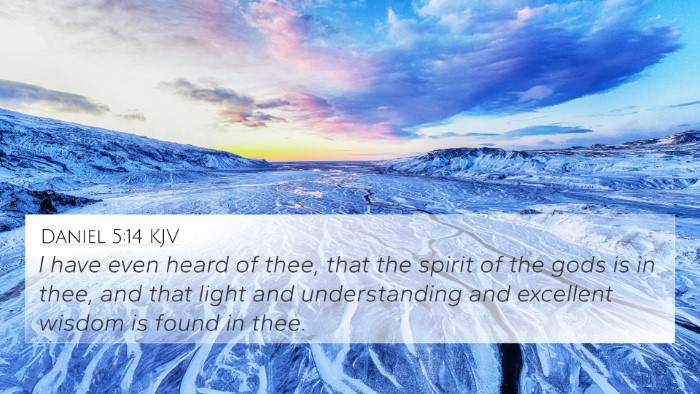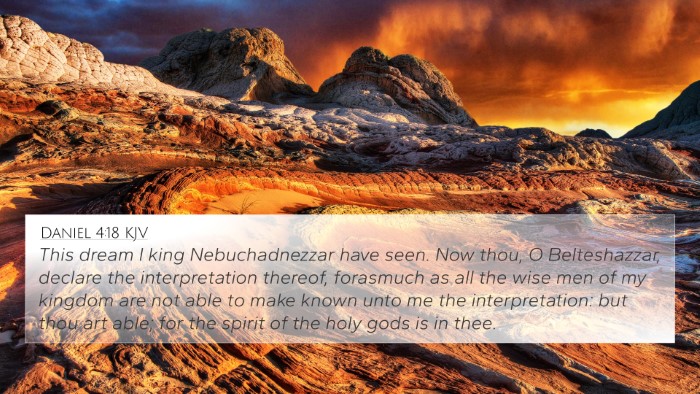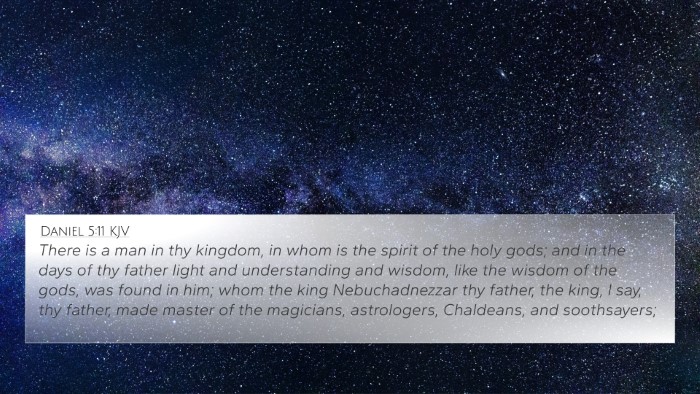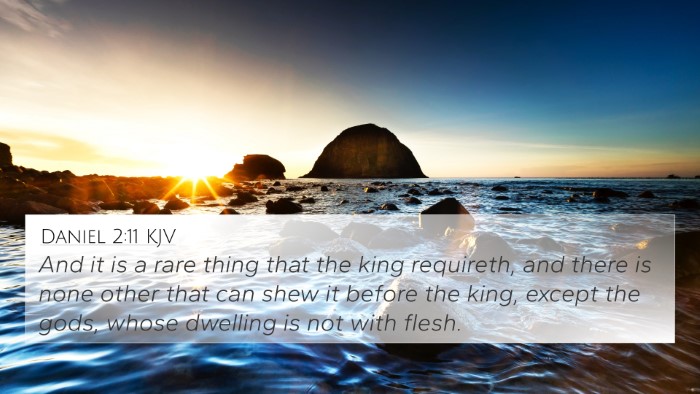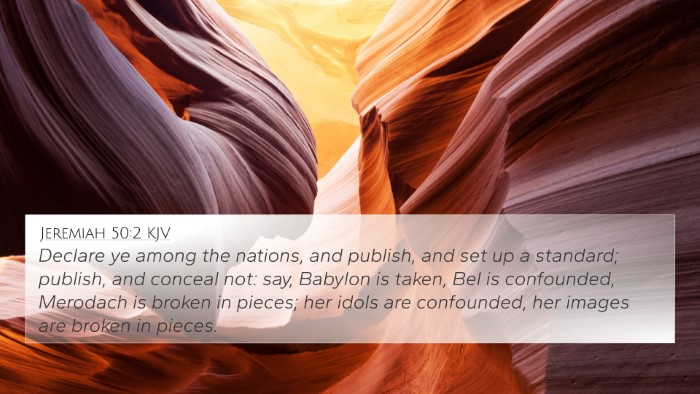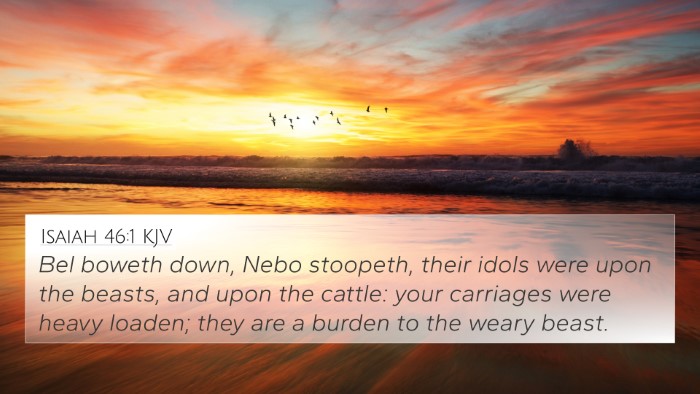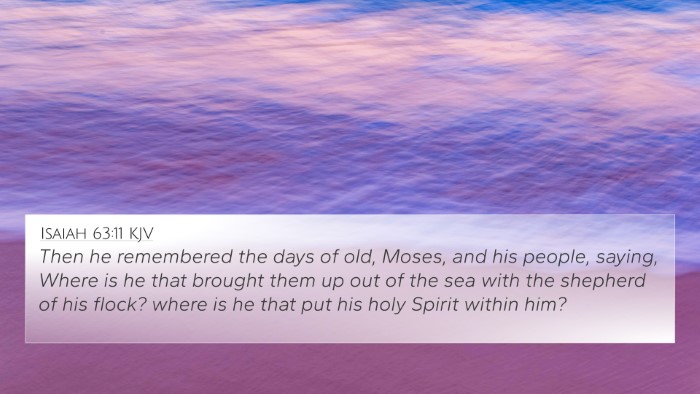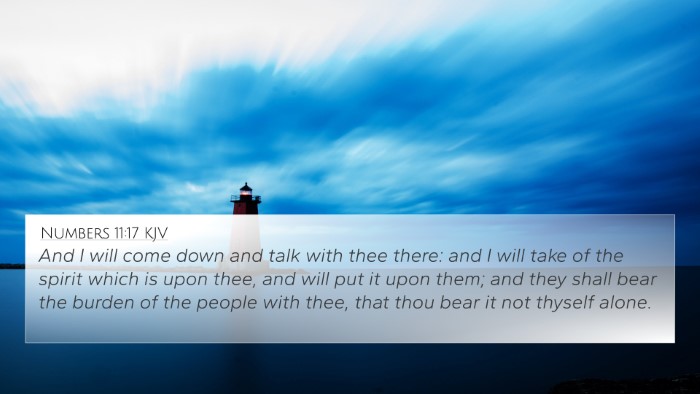Bible Verse Meaning of Daniel 4:8
Daniel 4:8: “But at last Daniel came before me, whose name was Belteshazzar, according to the name of my god, and in whom is the spirit of the holy gods; and before him I told the dream, saying,”
Overview and Context
This verse occurs within the narrative of King Nebuchadnezzar's troubling dream, which he unsuccessfully seeks to interpret through his wise men. This sets the stage for the introduction of Daniel, a key figure whose relationship with God allows him to reveal interpretations of divine revelations. Daniel’s Babylonian name, Belteshazzar, reflects the cultural context in which he exists, yet the spirit of God within him shines through as a defining trait.
Summarized Interpretations
Integrating insights from public domain commentaries gives a blend of understanding about Danial 4:8:
- Matthew Henry: Henry emphasizes the providence of God in raising Daniel from obscurity to prominence. The king’s reliance on Daniel symbolizes the recognition of divine wisdom, which surpasses human understanding.
- Albert Barnes: Barnes notes Daniel's name change signifies his service in a foreign land but affirms that his true identity is rooted in his faith and relationship with God. He highlights the contrast between the king's gods and the true God whom Daniel serves.
- Adam Clarke: Clarke highlights the importance of the title “Belteshazzar” as representative of the Babylonian context that Daniel navigates. He articulates the idea that while Daniel is in a worldly setting, his character and integrity remain consistent with his faith in God.
Thematic Connections
Daniel 4:8 illustrates several key themes:
- Divine Revelation: This verse begins a discourse on the reception and interpretation of divine messages, essential for understanding God’s plans.
- Faith and Identity: Daniel’s identity as a faithful servant of God amidst a pagan culture highlights the conflict between loyalty to God and cultural compromise.
- God’s Sovereignty: The narrative stresses the unshakeable sovereignty of God, demonstrating that even in foreign lands, His wisdom prevails.
Cross-References
The following verses are related to Daniel 4:8, creating rich cross-references that enhance the understanding of its themes:
- Daniel 2:47: Here, Nebuchadnezzar acknowledges that Daniel’s God is indeed the “God of gods,” showing a recognition of divine authority.
- 1 Corinthians 2:12-14: Discusses the spirit of God within believers, akin to how Daniel is described, showing a parallel to the Holy Spirit's guidance.
- Proverbs 21:30: Affirms that no wisdom or understanding can stand against the Lord, reflecting the theme of divine wisdom over human attempts.
- Acts 7:9: Highlights the faith of Joseph and the work of God’s providence, similar to how Daniel operates under divine guidance in Babylon.
- Matthew 10:20: Jesus teaches that the Spirit of God will instruct believers in what to say, akin to Daniel receiving divine insight.
- James 1:5: Encourages believers to ask God for wisdom, connecting the pursuit of understanding with God’s character.
- Romans 8:14: Emphasizes being led by the Spirit of God, paralleling Daniel’s relationship with the divine.
Conclusion
In conclusion, Daniel 4:8 serves not only as a historical account but also as a profound theological reflection on faith, divine wisdom, and the character of God as recognized by Babylonian leaders. The insights provided by Matthew Henry, Albert Barnes, and Adam Clarke illuminate the significance of this verse in the broader biblical context, encouraging a deeper exploration of cross-references and thematic connections within scripture.
For an in-depth study, consider various Bible cross-reference tools and Bible concordance resources that can aid in revealing further connections between Bible verses.
